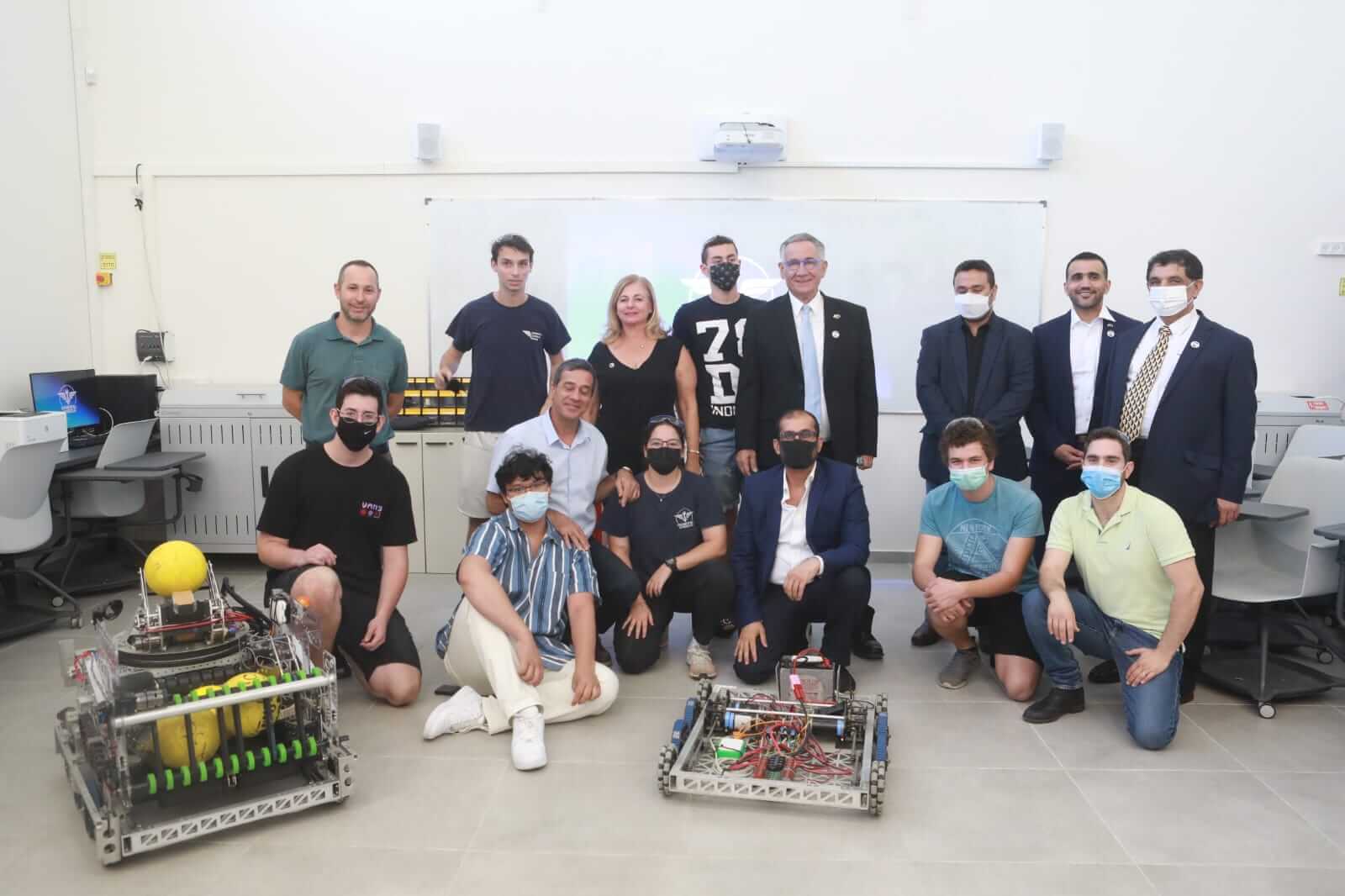The students invited the Emirati children to jointly develop a satellite for the study of climate and global warming

Minister of Education of the United Arab Emirates, Hussein bin Ibrahim Al Hammadi, arrived this morning for a visit to Israel and met with students from the Science Center in Herzliya.
The visit was attended by the Mayor of Herzliya, Moshe Padlon, Deputy Mayor Aya Friskolnik, Deputy Mayor Ofra Bell, Director of the Education Division, Dr. Yaakov Nahum, and Director of the Science Center, Meir Ariel.
The students presented to the Emirati Minister of Education their flagship project - construction and development of blue and white satellites. In addition, the students invited the Emirati students to jointly develop a satellite for global climate research in order to help in the fight against global warming.
The Herzliya Science Center made history when it was the first educational institution in the world to build and launch satellites into space. The students at the center have so far launched three satellites - in 2014, 2017 and 2019, and in about two months they will launch a group of 8 satellites into space, funded by the Israel Space Agency.
The Emirati Minister of Education was impressed by the initiatives and advanced technological developments that the youth presented to him, and thanked the Science Center for its contribution to the advancement of education and scientific and technological education.
At the end of the visit, the Emirati Minister of Education and the Mayor of Herzliya gave each other a gift.
The mayor of Herzliya, Moshe Padlon, said: "It is an honor for us to host the Minister of Education of the United Emirates in Herzliya. I see his visit as an expression of the appreciation he has for the science center and the educational-scientific activity that takes place there. Education is at the top of the list of priorities of the municipality of Herzliya, with our excellent municipal education system leading innovative programs and initiatives, which are often groundbreaking, while placing special emphasis on subjects such as space exploration, science and technology studies."
MM and Deputy RA in charge of education, Aya Priskolnik, said: "I am proud of our talented city students and the municipal education system that present such groundbreaking programs and initiate world-wide collaborations. We will continue to strengthen the system and provide it with the necessary resources."
The Director of the Education Department, Dr. Ya'akov Nahum, said: "The education system in Herzliya has once again demonstrated high academic ability in the fields of science and technology, its name has gone far and wide and reached the Emirates." Upon his landing in Israel, the Emirati Minister of Education chose to first visit the Herzliya Science Center and learn about our groundbreaking education system. I am happy about the future collaborations in the fields of science and technology, it is a source of pride for the education system in Herzliya."
About 1,400 students from science-oriented schools in Herzliya study formal science classes (physics, chemistry, computers, biology, etc.) at the Science Center, and in addition, in the afternoons, about 1,500 students from kindergarten through XNUMXth grade participate in science enrichment classes and experience projects in the fields of space , robotics and other sciences.
The flagship projects of the Herzliya Science Center:
- A sophisticated and unique laboratory for the construction and research of tiny satellites, including "clean research" and a ground station with advanced equipment for receiving satellite broadcasts.
- A laboratory for building robots.
- A station for radio amateurs and a sophisticated mobile planetarium that travels between the schools in the city and is intended to bring children and teenagers together in the subjects of astrophysics and space exploration.
In addition, the municipality of Herzliya promoted the construction and development of ten more schools throughout the country, which operate according to the model of the Science Center.
